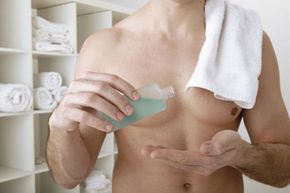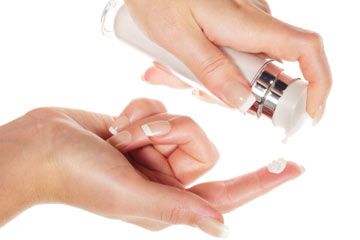If we can learn nothing more from a walk down the personal care aisles at the pharmacy, we'd learn that men and women need different skin-care products. Or do they? The market for grooming products designed with men specifically in mind, everything from moisturizers to razors, was valued at nearly $20 billion (worldwide) in 2009 and is expected to rise to $28 billion within five years. If you consider that not all men rely on male-targeted beauty products and may stray into unisex and female-targeted products, the market is estimated to hit nearly $85 billion total value by 2014 [source: Packaged Facts]. Is there really a need for skin-care products based on gender, and specifically something as universal as moisturizer? To find out, we'll first need to understand a little bit about our skin.
Our skin is made up of three layers. The deepest of the layers is called the subcutis (or the subcutaneous fat layer), and this layer helps insulate us against temperature changes and protect against injuries. The middle layer is called the dermis, and it's within this layer of skin that you'll find nerves, blood vessels, sweat glands and hair follicles. The outermost layer of skin is called the epidermis, which gives us our skin tone and provides a protective, waterproof layer. The outermost layer of the epidermis is called the stratum corneum. It's the stratum corneum that benefits from the various lotions and potions we apply to help control and prevent dry skin.
Advertisement
While the anatomy of the skin is the same from person to person, there are some suspected gender differences in the physiology of our skin. From pH levels to hormones, let's find out if those differences mean you should keep his and hers moisturizers on hand.
Advertisement


